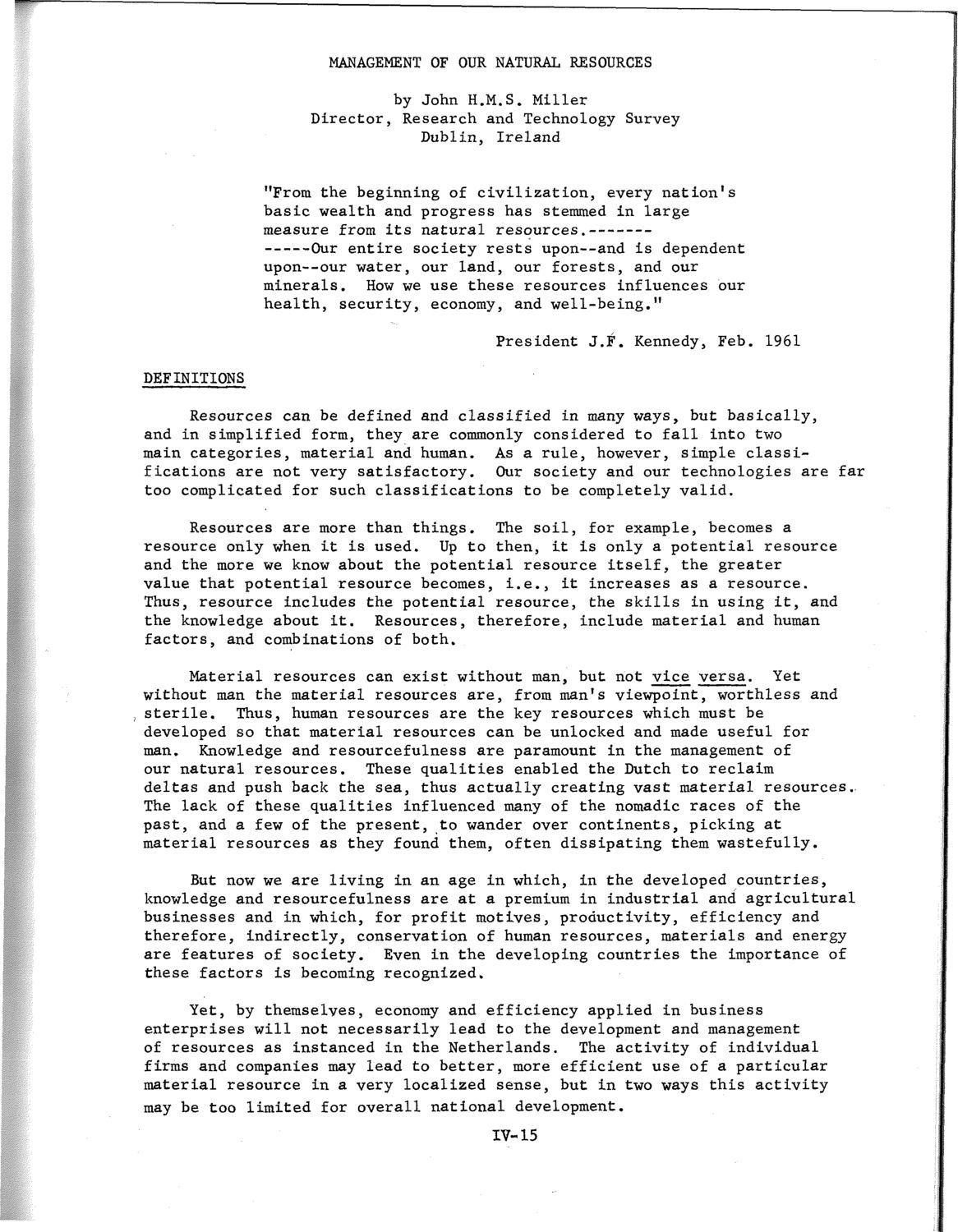| |
| |
Caption: SWE - Proceedings of the First International Conference of Women Engineers and Scientists
This is a reduced-resolution page image for fast online browsing.

EXTRACTED TEXT FROM PAGE:
MANAGEMENT OF OUR NATURAL RESOURCES by John H.M.S. Miller Director, Research and Technology Survey Dublin, Ireland "From the beginning of civilization, every nation's basic wealth and progress has stemmed in large measure from its natural resources. Our entire society rests upon—and is dependent upon—our water, our land, our forests, and our minerals. How we use these resources influences our health, security, economy, and well-being." President J.F. Kennedy, Feb. 1961 DEFINITIONS Resources can be defined and classified in many ways, but basically, and in simplified form, they are commonly considered to fall into two main categories, material and human. As a rule, however, simple classifications are not very satisfactory. Our society and our technologies are far too complicated for such classifications to be completely valid. Resources are more than things. The soil, for example, becomes a resource only when it is used. Up to then, it is only a potential resource and the more we know about the potential resource itself, the greater value that potential resource becomes, i.e., it increases as a resource. Thus, resource includes the potential resource, the skills in using it, and the knowledge about it. Resources, therefore, include material and human factors, and combinations of both. Material resources can exist without man, but not vice versa. Yet without man the material resources are, from man's viewpoint, worthless and , sterile. Thus, human resources are the key resources which must be developed so that material resources can be unlocked and made useful for man. Knowledge and resourcefulness are paramount in the management of our natural resources. These qualities enabled the Dutch to reclaim deltas and push back the sea, thus actually creating vast material resources. The lack of these qualities influenced many of the nomadic races of the past, and a few of the present, to wander over continents, picking at material resources as they found them, often dissipating them wastefully. But now we are living in an age in which, in the developed countries, knowledge and resourcefulness are at a premium in industrial and agricultural businesses and in which, for profit motives, productivity, efficiency and therefore, indirectly, conservation of human resources, materials and energy are features of society. Even in the developing countries the importance of these factors is becoming recognized. Yet, by themselves, economy and efficiency applied in business enterprises will not necessarily lead to the development and management of resources as instanced in the Netherlands. The activity of individual firms and companies may lead to better, more efficient use of a particular material resource in a very localized sense, but in two ways this activity may be too limited for overall national development. IV-15
| |